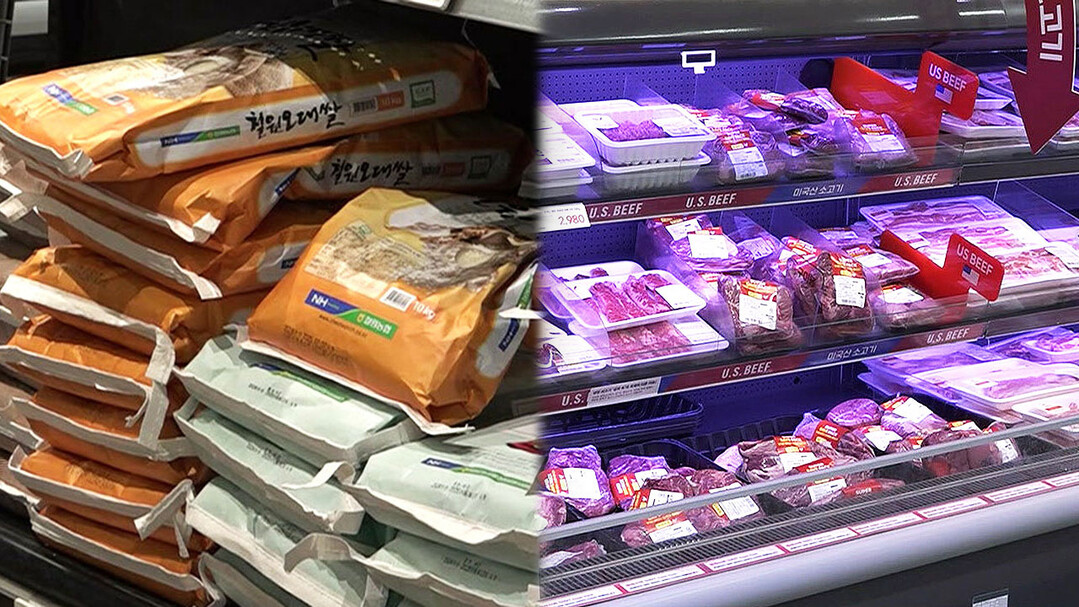
After intense trade negotiations with the United States, the South Korean government has successfully protected its rice and beef markets. Despite strong pressure from the U.S. to open these markets, the Korean negotiating team presented a photo of the 2008 candlelight vigils against mad cow disease to persuade them of the sensitivity of the agricultural and livestock market, ultimately leading to an agreement. However, some critics are raising concerns that the price for protecting these markets was an excessively large increase in investment in the U.S.
Persistent Persuasion Against U.S. Pressure
In the Korea-U.S. trade negotiations held in Washington D.C. on the 30th (local time), the two countries agreed not to open South Korea's agricultural and livestock markets further. This is considered a diplomatic achievement for the Korean government, especially given that the U.S., conscious of the farm votes that form a core part of President Donald Trump's support base, had been strongly demanding an increase in rice imports and the removal of regulations on beef imports throughout the negotiations.
The Korean negotiating team employed a variety of strategies to counter U.S. pressure. First, in the case of rice, they emphasized the unique nature of the World Trade Organization (WTO) agreement, which prevents a country from arbitrarily increasing imports from a specific country. This argument—that increasing U.S. rice imports without consulting other nations would violate international norms—effectively defended against the U.S.'s unreasonable demands.
In the beef negotiations, the team highlighted that South Korea is already the world's largest importer of U.S. beef. Last year, South Korea's imports of U.S. beef totaled $2.22 billion, ranking first globally. This statistic, also acknowledged by the U.S. Department of Agriculture (USDA), served as powerful evidence that South Korea already makes the largest contribution to American farmers.
The Decisive Role of the Mad Cow Disease Candlelight Vigil Photo
A particularly notable aspect of the negotiation process was the use of a photo of the 2008 candlelight vigils as a bargaining chip. Kim Jung-kwan, Minister of Trade, Industry and Energy, stated in a briefing that he showed the U.S. side a photo of the protest, which had gathered over one million people, to emotionally appeal to them about how sensitive the issue of opening the agricultural and livestock market is to the Korean public. This is said to have had a significant impact on persuading the U.S. negotiating team.
It was also reported that there were significant disagreements within the government while formulating the negotiation strategy. Kim Yong-beom, Chief of the Presidential Policy Office, explained that there were "fierce arguments to the point of raised voices between ministries," and that the president focused on preventing additional market openings due to the political and historical sensitivities of agricultural and livestock products.
Increased Investment Volume Is Another Challenge
While there is predominantly positive feedback on the successful protection of the rice and beef markets, concerns are also being raised that the price was an excessively large increase in investment in the U.S. The Korean government, which had initially aimed for an investment amount half of what Japan had offered, ultimately promised $350 billion in investment in the U.S. This is pointed out as a considerable amount when compared to Japan's investment ($550 billion) and considering the size of the Korean economy.
Business community insiders expressed their concerns, stating, "It is fortunate that the rice and beef markets were protected, but there is an aspect where the investment amount increased due to pressure from the U.S." They added, "Expansion of investment in the U.S. will inevitably lead to a decrease in domestic investment capacity." Trade experts also positively evaluated the protection of the sensitive agricultural and livestock markets but expressed regret over the scale of the investment in the U.S.
The recent Korea-U.S. trade negotiations represent a meaningful achievement in that the Korean government defended a key industry by considering public sensitivities. However, it also leaves another challenge in the form of increased investment, making this a time to closely monitor the future impact on the domestic economy.
[Copyright (c) Global Economic Times. All Rights Reserved.]




























